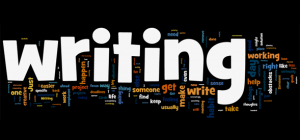
by Jenna | Sep 21, 2023 | ScriptMag Articles
In this month’s “Ask the Coach” article, I’m addressing a set of questions from a reader about managing self-doubt in writing.
“[My] fear of failure has several prongs for me:
1. What if no one likes my writing? I’m trying to make it as truthful as it is filled with emotion and colorful descriptions, but maybe it’s just me because I relate to it all.
2. I’m currently writing a memoir that involves some memories of my parents and their failures — but good memories also. I feel guilty/disloyal for writing about their failures, but to some extent that’s where the strength of the story lies.
3. What I create in my head as I’m falling asleep never seems to be as great when I put it into my computer.
4. I suffer off and on with imposter syndrome, but I usually like what I write in the end.”
This is a set of challenging questions so many writers wrestle with. It reads to me like issues of self-doubt more than a fear of failure, though the two are intertwined.
First let me say this: In working with writers all over the world, being a writer myself, and reading first-hand accounts of seasoned, professional writers, so many if not all writers deal with self-doubt and fear much of the time (including me).
Here are the 6 antidotes I discuss in my response:
- Use self-doubt as a clue that what you’re working on is important.
- Trust that truth transcends differences.
- Ask yourself empowering questions.
- With memoir, write for yourself first.
- Embrace the vision while also welcoming imperfection.
- Trust the process.
The real key to all of this is learning to manage the doubts and the fears so they don’t stop you from writing, and so that they don’t make the experience of writing miserable along the way, by triggering overwhelming negative self-talk, habitual procrastination, perfectionism, and even shame.
Want the full scoop? Get all the details in the full article on Script Mag:

by Jenna | Jul 26, 2017 | Writing Articles
Last week I shared Part I of this post about the many faces of procrastination, and the underlying reasons it shows up. It's not necessarily "just" writer's block or laziness, which are the common explanations I hear.
There are actually a number of variations on the theme of procrastination, and it's usually driven by something deeper, like feeling stuck, being overwhelmed, being hooked by perfectionism, or wrestling with past creative wounds that need addressing -- some of the examples I wrote about last week.
Let's look at a few more of these writing-stoppers that show up as procrastination.
You're creatively confused.
Creative confusion is one of the most fascinating causes for procrastination I've come across (perhaps because it's one of my personal "favorites"). Creative confusion will have you spinning in circles, not sure which direction to go with your story, considering multiple ideas and perspectives, and feeling unable to decide among them. It's as if everything suddenly has equal value and there's no differentiating them.
Part of the issue here is empowerment. When you forget that you're the architect of your story and that there's not necessarily a "right" way to write it, it's easy to get confused. Confusion can also be a smokescreen for the fear that you'll get it "wrong."
Antidotes: Make the shift into action by being willing to do the work of sorting through your ideas by putting them on paper and evaluating them as objectively as you can. One of the ways creative confusion keeps you stuck is that it all happens very quickly in your head. Get it down, and figure it out. And remember that you're the one in charge. It can also be helpful to talk it through with a trusted coach or writing pal who has your story's best interests at heart (not her ideas for what you "should" do).
You're feeling apathetic about your book (or script).
Creative boredom or apathy is another one of these super tricksters that can keep you locked into procrastination. You don't write because it feels like you've "just lost interest" in your story. Interestingly, this usually happens when you've just hit (or are about to hit) a major milestone with your story, or you're about to tackle the next stage. What's happening here is that a new level of fear is cropping up and putting the brakes on to minimize your risks of failure.
In other words, it ain't about the story.
Antidotes: Keep on keeping on. The only way out is through. While there may be passages in your book that are need work, that's a storytelling problem, not "time to give up on the whole project" problem. This is the place to commit to finishing, no matter what.
This is also a great time to remind yourself of your Why for the project -- why you started writing it in the first place. Sometimes just tracking back to the Why will be enough to get you in action again.
You're having trouble deciding which book to write.
This kind of procrastination turns up when you know you want to write or feel ready to write but you can't decide which story to work on, or you decide on one, only to change your mind in short order, usually telling yourself it's not good enough in some way, then look around for something else to work on, only to dismiss that one too. And the next one after that.
This kind of procrastination can also look like coming up with a bazillion ideas to work with but not being able to choose among them.
Antidotes: Check out my free downloadable guide about how to choose your next book (or script) using decision criteria and intuitive decision-making skills. You can also try one of my favorite bits of Steven Pressfield's wisdom, which is to "figure out what scares you the most, and do that first."
(If, on the other hand, you're totally drawing a blank for any ideas at all, try Elizabeth Gilbert's approach of paying attention to your faintest whispers of curiosity and see where they lead you.)
You've fallen out of the habit of writing and each day that goes by, it gets harder to restart.
If your writing practice has fallen apart -- for whatever reason -- procrastination has taken hold and it's just not getting any better. Each day you tell yourself you're going to write, but find endless distractions around the house, get caught up in work (or TV or candy crush!), tasks to take care of, or toilets to clean. This is "garden variety" procrastination in my book, but it's still a doozy.
Antidotes: Set a very small writing goal and meet it. Then do it again the next day. And the next. Keep going until you have the practice in place. Troubleshoot any obstacles that come up -- like falling into reading email or getting sucked into other tasks -- and find ways to streamline your path to your writing desk each day. If you set a goal, and you're still procrastinating, make the goal smaller until you actually do it. Get accountability to help you with this if you need it. (Work with me 1:1, for example.)
You're dealing with big personal changes.
Look, sometimes big life events happen and the idea of tackling writing at the same time feels (and may even be) impossible. Major illnesses, weddings, new romances, births, deaths, break ups, divorces, moves, and job changes are life changes that can get in the way of writing and then morph into "regular" procrastination even once the dust has settled. It's okay. It happens. But it's helpful to know how to deal with it when a big part of your identity is tied into being a writer and you start losing your sense of self while it's all happening, and then wonder who you are when it's done.
Antidotes: Be patient with yourself during the upheaval, and give yourself a little time for re-entry. You may want to have a "maintenance practice" of writing morning pages in place during these times, even as a placeholder until you can get back to your book or script writing efforts. Have a plan in place for how and when you'll reboot your writing once you've made it through the thick of the experience. If you find yourself still struggling with your identity after the fact, do some journaling or coaching work to help get you back in touch with yourself as a writer.
You're an adrenaline addict.
One of the most fascinating parlor tricks I see writers engaging in is creating an endless series of non-writing emergencies, deadlines, and disasters that make it impossible to write. This is procrastination at its peak form, because it becomes inarguable. Whatever "it" is, has become such an emergency, that it has to be done right now. At this point, it actually does. But when a writer lives this way, chasing from disaster to disaster, writing always gets to stay (safely) at the bottom of the pile.
The trickiest trick of all is that the purveyor of these hijinks deep down revels in the sense of excitement and in being the rescuer of the situation from certain doom. It turns out, writers who do this to themselves are addicted to the rush of it all, and they'll even design it so they "get" to write this way too (at the last minute, in a mad panicked rush).
This strategy does two things. It's a brilliant way of getting off the hook for doing your best work, because you simply can't, not with all those emergencies to take care of. It's also very clever way of getting an adrenaline boost of energy to face the terror of writing.
Antidotes: Admit the addiction. Make a conscious choice to stop this behavior. Learn to pace yourself -- with everything, including your writing -- and get ruthless about cutting out anything and everything you don't have to do. You don't have to do everything and you don't have to do it all perfectly. Cut some corners!
You're just plain tired.
Maybe you're not exhausted, but "just" tired. Maybe you haven't reached the point of creative burnout, like I mentioned last week, but maybe you have other non-writing commitments that tax you. Some of these are avoidable (volunteering for committees) and some are not (having little kids or an aging parent), but either way you're tired. This tiredness becomes an excellent excuse for procrastinating. "I'm tired," you say. "I just don't have it in me today to write. I'll do it tomorrow."
Antidotes: I've always loved the quote from David Whyte on this subject, “You know that the antidote to exhaustion is not necessarily rest? … The antidote to exhaustion is wholeheartedness.” When it comes to the daily sort of tiredness that can leave us feeling run down (as opposed to massively burned out), writing regularly -- even just in small amounts -- is often the cure. Also, take a look at how you're investing your precious life energy and see where there might be energy leaks you can shore up. Look for where you're not feeling a "Hell, yes!" about the things you've committed to and think about letting them go. Work with a friend or coach to inventory your commitments and see what you can release for someone else to handle.
Photo by Igor Ovsyannykov on Unsplash

by Jenna | Feb 6, 2015 | Writing Articles
Today I'm reprinting a revised version of a favorite article that appeared on the blog in January 2012. It's just as relevant today as it was then. Enjoy!
One of the most common excuses I hear from people who say they want to write but aren't doing it is that they don't have enough time.
If you're attached to that excuse, you might not want to keep reading. :)
I see frequent articles on the web about "how to find time to write" -- and I've even written one of them myself for my ebook (it's good -- you can check it out here). But despite the plethora of advice out there about how to find the time, many aspiring writers are still not getting their butts in their seats and their fingers on the keys. And I know it's NOT because they haven't read the right "find the time" article yet.
So what's happening instead?
What you're telling yourself instead of writing
If you're wanting to write, but not doing it, you're probably telling yourself something along these lines:
I'm too busy -- I have too much on my plate already.
Even though I really want to, I just don't have enough time to write.
I have to have a big block of time to write, and that's impossible given my schedule.
I'm already exhausted, I can't add one more thing.
You might even be telling yourself you have more important things to do. You've got an endless to-do list, right? And obligations and commitments that are Really Important.
You might be waiting for a whole day off or a Big Block of Writing Time where you can finally sit down and focus on your writing, but when that time comes, you remember that the laundry really needs to get done or that you promised Jane you'd go with her to that party and you don't have anything to wear so you have to go shopping and while you're out you remember that you forgot to... Well, you get the picture.
You might also be thinking you need to get farther along in your career and save some money (or get the right writing room or the right computer) before you can devote yourself to your writing career.
But none of these are the real reasons you aren't writing.
Let me tell you what is true
The real reason you are not writing is because you are scared.
You are scared that you don't know how to write, or what to write about.
You are scared that your writing won't be good enough, original enough, or that maybe someone else has already said it better.
You are afraid that your new book concept isn't going to hold up or that you'll lose interest part way through.
You are scared to do the hard work of writing, and overwhelmed by the thought of such a big project.
You aren't sure where to start or what to write about.
You are afraid to do a new kind of writing or venture into new territory, that you won't be able to do it justice.
You're scared you might hurt people if you write your truth. Or disappoint them.
This thing about time is just a story
You can go on telling yourself the story that you don't have time to write if you want to, but we both know it isn't true.
If writing means as much to you as you say it does, you must learn to overcome your fear so you can make it happen.
Stop looking for TIME and start looking for COURAGE.
You can do it. I believe in you.

by Jenna | Jan 7, 2015 | Writing Articles
Apparently I think in sevens a lot, at least when it comes to writing about writing.
As I was reviewing the most-read posts of 2014, apparently sevens were appealing to you, too.
These "7's" posts were among the most popular last year, counting down to your favorite (and there's no surprise to me there about why that one was the favorite -- it's something we all deal with!)
So, in reverse order, our lucky sevens:
7 steps to recovering from creative burnout
 When you get burned out, it's hard to do anything, let alone be creative. In this article, I outline seven steps you can take to go from creative burnout to creative recovery, so you can bring back the joy you feel when you create. This is an important skill to master because sometimes -- even when we're doing our very best to keep the creative well filled and do our writing at a sustainable pace -- resistance, deadlines, life, and fate conspire to the point where we're scrambling to finish a project under a big time crunch, binge-write, and exhaust ourselves as a result (sometimes doing so for days, weeks, even months on end). And once we've hit that bottom of the creative barrel, writing anything sounds entirely miserable. Read this article to find out how to bring yourself back into creative balance.
When you get burned out, it's hard to do anything, let alone be creative. In this article, I outline seven steps you can take to go from creative burnout to creative recovery, so you can bring back the joy you feel when you create. This is an important skill to master because sometimes -- even when we're doing our very best to keep the creative well filled and do our writing at a sustainable pace -- resistance, deadlines, life, and fate conspire to the point where we're scrambling to finish a project under a big time crunch, binge-write, and exhaust ourselves as a result (sometimes doing so for days, weeks, even months on end). And once we've hit that bottom of the creative barrel, writing anything sounds entirely miserable. Read this article to find out how to bring yourself back into creative balance.
7 ways to recommit to your writing
 Sometimes as writers we get into a good writing practice but still manage to become complacent about actually FINISHING projects and moving on to the next one, rather just making small amounts of progress or endlessly rewriting and editing. When that happens, it's time to recommit, and raise the bar of our own expectations. In this article, I discuss seven ways to stop phoning it in and require more of yourself as a writer. Read this article to find out how to to recommit to your own writing.
Sometimes as writers we get into a good writing practice but still manage to become complacent about actually FINISHING projects and moving on to the next one, rather just making small amounts of progress or endlessly rewriting and editing. When that happens, it's time to recommit, and raise the bar of our own expectations. In this article, I discuss seven ways to stop phoning it in and require more of yourself as a writer. Read this article to find out how to to recommit to your own writing.
7 ways to overcome fear and uncertainty about writing
 In this terrific guest post, produced screenwriter Sarah Newman talks about how to stay in action and keep moving forward with our writing even when fear and uncertainty rear their ugly heads. She shares a list of seven great ways to get unstuck and keep writing that I'm sure you will find both handy and inspiring. Read her article and discover how to get into action with your writing.
In this terrific guest post, produced screenwriter Sarah Newman talks about how to stay in action and keep moving forward with our writing even when fear and uncertainty rear their ugly heads. She shares a list of seven great ways to get unstuck and keep writing that I'm sure you will find both handy and inspiring. Read her article and discover how to get into action with your writing.
My 7 part series, "Make 2015 your year to write"
 Our most recent "7's" post was my seven-part series, called "Make 2015 Your Year to Write". If you missed it, it's not too late to work with the writing prompts in the series that will help you design and create goals and resolutions for your writing year (2015 or otherwise!) so that they are well-aligned with what you want in the big picture. That way you can make sure you're working grounded in the reality of where you are right now as a writer and where you want to end up.
Our most recent "7's" post was my seven-part series, called "Make 2015 Your Year to Write". If you missed it, it's not too late to work with the writing prompts in the series that will help you design and create goals and resolutions for your writing year (2015 or otherwise!) so that they are well-aligned with what you want in the big picture. That way you can make sure you're working grounded in the reality of where you are right now as a writer and where you want to end up.
7 tips for staying motivated by self-created deadlines
 This article ties in neatly with the article on recommitting, because self-created deadlines can be a powerfully motivating when it comes to hunkering down and doing the work. In this piece I talk about seven strategies you can use to make your inner deadlines actually mean something. Hint: It often involves turning those "inner" deadlines into outer ones. Read more about mastering your self-created deadlines here. (And see if you can guess which one is my favorite!)
This article ties in neatly with the article on recommitting, because self-created deadlines can be a powerfully motivating when it comes to hunkering down and doing the work. In this piece I talk about seven strategies you can use to make your inner deadlines actually mean something. Hint: It often involves turning those "inner" deadlines into outer ones. Read more about mastering your self-created deadlines here. (And see if you can guess which one is my favorite!)
And your favorite "7" post: 7 ways to beat procrastination
 This article was your favorite "7" post, and it's one of mine too. And it's no surprise. Procrastination is one of the biggest things we struggle with as writers. In the piece I talk about the most common reasons for procrastination and seven ways to beat it, including some things you may not have thought of, like setting super small micro goals, telling others about what you're doing to create accountability for yourself, and knowing when to STOP writing. Check it out here and bust your own procrastination habit while you're at it.
This article was your favorite "7" post, and it's one of mine too. And it's no surprise. Procrastination is one of the biggest things we struggle with as writers. In the piece I talk about the most common reasons for procrastination and seven ways to beat it, including some things you may not have thought of, like setting super small micro goals, telling others about what you're doing to create accountability for yourself, and knowing when to STOP writing. Check it out here and bust your own procrastination habit while you're at it.
Enjoy, writers!
I hope your 2015 is off to a great start.
Happy writing.


by Jenna | Nov 5, 2014 | Writing Articles
As I mentioned in a recent post, as writers --particularly undertaking big writing projects like a book, novel, screenplay, or even NaNoWriMo! -- we need to be mindful about our self-talk and keep it as encouraging and self-supportive as possible.
This is because one of our main tasks (aside from doing the actual writing) is preventing the freaked out voices of fear, self-doubt, and even a little panic (!!!) at times, from stopping us. Those voices may be loud, scary, and intimidating, but it doesn't mean they are right. As writers, we have to learn not to take them seriously and how to kick them to the curb so we can keep doing what we were put here to do.
1. Use the power of yet
I read a powerful post the other day called, “The Power of Yet”.
The core idea is to add the word “yet” to a negative thought.
Like this:
- You might catch yourself saying, “I don’t know how to solve this plot problem.”
- You can quickly add “yet”, to make it, “I don’t know how to solve this plot problem yet.”
Isn’t that interesting?
It takes a defeated “fixed” perspective and cranks it sideways to make room for possibility. And I'm a firm believer in the power of our subconscious minds to help us solve unsolved problems. A "yet" sets the stage for room to solve, grow, learn, discover. You may not know how yet :), but you will!
I love the power of this simple mindset strategy to change how you’re approaching your writing life.
- "I’m not good at plotting."
- "I’m not good at plotting yet."
Or
- "I don’t write characters very well."
- "I don’t write characters very well yet."
It’s an “I’m still learning” stake in the ground against the forces of darkness and negativity.
I love it!
2. See fear and doubt as familiar visitors you know how to handle
We all have a particular conversation that comes up when we're feeling the doubt and facing the fear head on. It sounds different for each person, though there are common threads.
You might hear things like:
- "You're not good enough."
- "This is too hard."
- "You're unoriginal."
- "I'm bored with this."
- "I'm not cut out to handle this."
- "You're doing it wrong."
The thing is, most of these comments come whizzing through our brains at lightning speed and kick us in the gut before we even know what happened.
And then we're feeling bad, not believing in ourselves and our work, and pretty soon we're not writing for the day or even blocked. It's like, BAM, day over.
How to change it up
The way to change this whole pattern is to NOTICE it.
Notice what your particular conversation is.
Write it down.
That's right. Put it on paper in black and white so you can really see it.
You might notice that's not even true!
You might also notice that you've been hearing those same thoughts over and over and over again.
No surprise there. It's your familiar visitor, one you've seen before (and one you will see again).
Why this even happens at all
Here's why this happens: When we take on a big dream through the auspices of a Big Damn Writing Project, the fearful, amygdala-driven part of our brains FREAKS OUT. "What? She's going to put herself out there like that? Is she crazy? We'll be ridiculed and exposed again, just like that time in second grade!! Oh no!!" And then the inner critic kicks into high gear, damage-control mode. "WHOOP WHOOP WHOOP", go the sirens. "RED ALERT! ALL SYSTEMS ON LOCKDOWN!"
That's what's going on behind those mean, horrible things you're saying to yourself.
They are cleverly, evilly, insidiously designed to SHUT YOU DOWN so you don't "get hurt".
But big surprise, inner critic, you actually WANT to do this project. :)
So your job is to say, "Oh, hold on, I see that you're equating this project with that painful experience in high school when you had to speak in front of the entire class and everyone laughed at you in a way that felt like you were going to melt into a giant puddle of liquid shame-goo, but this isn't the same thing. I'm a grown up now, and I actually want to do this project. So I'm going to take care of you, and me, and I promise we'll be okay. We can do this thing."
3. Reframe your negative messages
One of the most powerful things we do on a daily basis in my writing community is to use our online journaling system to reframe the negative messages that show up each day.
The first step is to note what the negative message is.
For example: "I'm not fast enough."
The second step is to take a look at that message in all its black and white glory and ask yourself, "How can I reframe that with a more positive perspective?" You might even want to pretend your best friend came to you saying that about herself. What would you say to her?
It might be something like, "I'm writing as fast as I'm capable of right now, and I'll only get faster over time."
Isn't that a bit kinder?
You might even try "yet" here, though I'd probably change it to something like, "I'm not as fast as I want to be yet."
What's your inner conversation like?
Here's an invitation for you. If you're feeling brave, tell us a self-directed negative thought you're holding about yourself as a writer by posting it in the comments. Then see how you might be able to reframe it or add the word "yet" to change it.
You may also be interested in:






 When you get burned out, it's hard to do anything, let alone be creative. In this article, I outline seven steps you can take to go from creative burnout to creative recovery, so you can bring back the joy you feel when you create. This is an important skill to master because sometimes -- even when we're doing our very best to keep the creative well filled and do our writing at a sustainable pace -- resistance, deadlines, life, and fate conspire to the point where we're scrambling to finish a project under a big time crunch, binge-write, and exhaust ourselves as a result (sometimes doing so for days, weeks, even months on end). And once we've hit that bottom of the creative barrel, writing anything sounds entirely miserable.
When you get burned out, it's hard to do anything, let alone be creative. In this article, I outline seven steps you can take to go from creative burnout to creative recovery, so you can bring back the joy you feel when you create. This is an important skill to master because sometimes -- even when we're doing our very best to keep the creative well filled and do our writing at a sustainable pace -- resistance, deadlines, life, and fate conspire to the point where we're scrambling to finish a project under a big time crunch, binge-write, and exhaust ourselves as a result (sometimes doing so for days, weeks, even months on end). And once we've hit that bottom of the creative barrel, writing anything sounds entirely miserable.  Sometimes as writers we get into a good writing practice but still manage to become complacent about actually FINISHING projects and moving on to the next one, rather just making small amounts of progress or endlessly rewriting and editing. When that happens, it's time to recommit, and raise the bar of our own expectations. In this article, I discuss seven ways to stop phoning it in and require more of yourself as a writer.
Sometimes as writers we get into a good writing practice but still manage to become complacent about actually FINISHING projects and moving on to the next one, rather just making small amounts of progress or endlessly rewriting and editing. When that happens, it's time to recommit, and raise the bar of our own expectations. In this article, I discuss seven ways to stop phoning it in and require more of yourself as a writer.  In this terrific guest post, produced screenwriter Sarah Newman talks about how to stay in action and keep moving forward with our writing even when fear and uncertainty rear their ugly heads. She shares a list of seven great ways to get unstuck and keep writing that I'm sure you will find both handy and inspiring.
In this terrific guest post, produced screenwriter Sarah Newman talks about how to stay in action and keep moving forward with our writing even when fear and uncertainty rear their ugly heads. She shares a list of seven great ways to get unstuck and keep writing that I'm sure you will find both handy and inspiring.  Our most recent "7's" post was my seven-part series, called "Make 2015 Your Year to Write". If you missed it, it's not too late to work with the writing prompts in the series that will help you design and create goals and resolutions for your writing year (2015 or otherwise!) so that they are well-aligned with what you want in the big picture. That way you can make sure you're working grounded in the reality of where you are right now as a writer and where you want to end up.
Our most recent "7's" post was my seven-part series, called "Make 2015 Your Year to Write". If you missed it, it's not too late to work with the writing prompts in the series that will help you design and create goals and resolutions for your writing year (2015 or otherwise!) so that they are well-aligned with what you want in the big picture. That way you can make sure you're working grounded in the reality of where you are right now as a writer and where you want to end up. 
 This article was your favorite "7" post, and it's one of mine too. And it's no surprise. Procrastination is one of the biggest things we struggle with as writers. In the piece I talk about the most common reasons for procrastination and seven ways to beat it, including some things you may not have thought of, like setting super small micro goals, telling others about what you're doing to create accountability for yourself, and knowing when to STOP writing.
This article was your favorite "7" post, and it's one of mine too. And it's no surprise. Procrastination is one of the biggest things we struggle with as writers. In the piece I talk about the most common reasons for procrastination and seven ways to beat it, including some things you may not have thought of, like setting super small micro goals, telling others about what you're doing to create accountability for yourself, and knowing when to STOP writing. 
